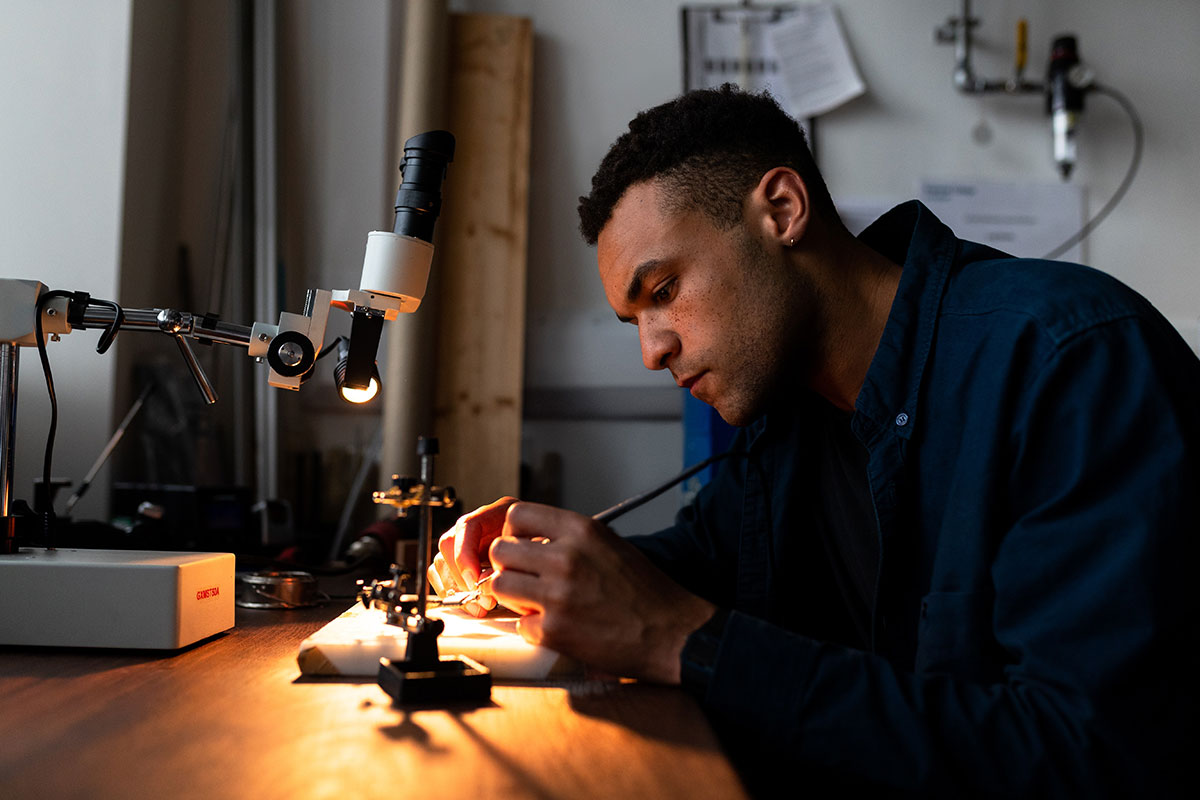Disclaimer: The information on our website is provided for general information purposes only. We make no representations or warranties of any kind, express or implied, about the completeness, accuracy, reliability, suitability or availability with respect to the website or the information contained on our website for any purpose. Any reliance on such information is therefore strictly at your own risk and we are not liable for any damages or losses arising out of or resulting from your reliance on any information contained on our website.
Mechanical engineer technologists and technicians support the work of mechanical engineers. In fact, they work in factories, research, and development laboratories. Additionally, they plan, develop, test, and manufacture machines, engines, and tools. If you enjoy hands-on involvement with machinery, this may be your job! Watch a career video to see what a mechanical engineer technologist and technician does.
How to Become a Mechanical Engineer Technologist and Technician

To become a mechanical engineer technologist and technician, you need an associate’s degree or certificate from a community college. Certification from a vocational-technical school is usually accepted as well. A bachelor’s degree from an accredited program would be especially helpful in gaining employment as a technologist.
The coursework of the technologist and technician is not as theoretical and has more application than an engineer, and additional laboratory work is required. Technologists and technicians have advanced courses in algebra and calculus as well. The National Institute for Certification in Engineering Technologies offers other optional credentials through its certification programs.
Mechanical engineer technologists and technicians must have excellent communication skills. It is imperative they give clear directions in writing and are well understood when working with others. They must be detail-oriented and have good mechanical skills, advanced mathematical skills, and have good problem-solving skills to assist engineers in overcoming design, manufacturing, or implementation problems.
Mechanical Engineer Technologist and Technician Job Description
Now let’s look at the difference between the mechanical engineer technologist and the technician and what they do. We will begin with the technician. Mechanical engineer technicians work under the supervision of engineers and technologists and install, troubleshoot, and sustain the engineers’ designs. The technician needs the supervisor’s verification of their performance competency as part of their certification. They can advance their careers with further education or certifications to become technologists.
Mechanical engineer technologists help enhance an engineers’ designs and integrate new technology. They typically oversee the installation of equipment and work under the supervision of the engineer. Employers prefer technologists to have an associate’s degree or bachelor’s degree and experience in this or a related field. Mechanical engineer technologists and technicians have much the same day-to-day duties. These duties may depend on the industry they work in such as energy, aerospace, petroleum, or manufacturing.
These technologists and technicians use three-dimensional software or drawings to prepare layouts of the assembly process and parts made. They study blueprints and specific instructions to ensure that plans meet specifications and procedures for the project. The technologist and technician may suggest how to save costs in equipment design, reliability, and safety in the planning, production, and assembly of mechanical parts for products and labor expenses. They perform tests of complete units and record the results that help them analyze the results with the design specifications and test objectives to recommend any changes in product or test procedures. The technologist and technician studies factory space to ensure effective and safe production and recommends any necessary changes to the engineer. We wish you success in your career choice!
Benefits of a Mechanical Engineer Technician
Congratulations on doing your research on what a Mechanical Engineer Technician does and how to become one. Let’s go over some of the benefits of this career field. Mechanical Engineer Technicians are needed in many different industries. This helps technicians with career opportunities and also helps their career advancement as they learn more on-the-job. They also get to work with others and solve problems for a living. If you enjoy critical thinking and problem solving, this career field offers this. As this is a more technical position, the salary is often competitive. If working full-time for an employer, technicians may receive generous benefits packages as well.
Mechanical Engineer Tech Career Video Transcript
Fascinated with engines and machines of all kinds? Well-organized and detail-oriented? Mechanical engineering technicians work with machines in all sorts of ways, from helping create new designs, to developing models and testing them, to manufacturing and operating finished machines. Often working with instructions from mechanical engineers, these technicians use 3-D design software, or sometimes paper and pencil, to make sketches of parts to be made, and of the process for putting parts together.
To help determine the viability of producing parts, mechanical engineering technicians estimate labor costs, length of equipment life, and plant space needed for production. Based on their designs, they plan and produce new mechanical parts or make changes to existing products. Precision is critical, so products and equipment are tested and results are compared with original design specifications. When issues are uncovered, mechanical engineering technicians work with engineers to eliminate production problems.
These technicians work primarily for engineering firms and manufacturing facilities on products such as flight simulators and control panels. Some work in research labs. Most work full time. Employers prefer candidates with an associate’s degree or certificate in mechanical engineering technology. Taking science and math courses in high school is helpful.

